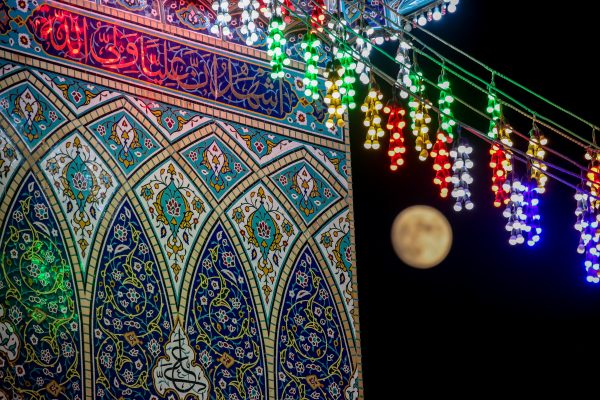“As SuShi kids, we create the overlap ourselves and figure out an identity.”
“As SuShi kids, we create the overlap ourselves and figure out an identity.”
Remember that scene in the second Harry Potter movie, when Draco Malfoy says to Hermione, “No one asked your opinion, you filthy little mudblood”? Ah, the irony of that one line and how it so accurately pinpoints the attitude of so many Muslims when they discover I am in fact, a SuShi kid. Usually, me telling them is accompanied by either a look of sympathy, a look of discomfort, and/or rapid, panicked blinking before saying “Wow, that’s so cool that you’re mixed!” I’ve heard and seen it all, my friends.
A few years ago, I wrote a piece on being “SuShi”, a millennial-coined term for someone who has a mixed Sunni-Shia background. Three years later, I feel compelled to write a sequel, simply due to events in my life that have only added to my observations as a SuShi kid living in a staunchly “You’re either Sunni OR Shia” world. Picture a Venn diagram, except the circles are separate and there is no overlapping section. As SuShi kids, we create the overlap ourselves and figure out an identity.
Publishing the original piece was an official embrace of my identity. I had come to terms with the fact that I was a proud Shia, which I define as the lover of Prophet Muhammad (pbuh) and his Ahlul-Bayt. I also published the piece when the moment of realization hit me after decades: that my religious identity was all due to my mother. A quick background of the history of strong women and SuShi ingredients that created me: My maternal grandmother is Shia. Out of respect for my Sunni grandfather, she raised her kids on the Sunni school of thought, including my mother. My mom then followed in her footsteps, except she switched it up. She raised my brother and I on my Shia father’s school of thought.
My mother is the one who took my brother and me to the Islamic center, to the Islamic school, who taught us stories of the Ahlul Bayt, who taught us how to read Qur’an, and who diligently prays, fasts, and embodies kindness and strength. She minds her own business, prays how she prays and does not blink an eye when she may be taunted for her background or her name sounding “too Sunni”. How she gave birth to someone who is now publicly taking up this fight for those who hurt her is beyond me. But, here I am.
I always tell those around me that coming from a mixed background has made me see the good in both sides and the ugly in both sides, with regard to the mentality of the followers. I can see the commonalities between both schools of thought just as I can also see where the points of contention arise. I have heard my Sunni acquaintances taunt Shia beliefs. I have heard my Shia acquaintances taunt Sunni beliefs; and usually, Shias give me the hardest time for my background. Cue the mudblood line.
Lately, the comments I hear are related to how we should pity the children of mixed-sect marriages because they end up confused and so fed up with the oh-so-inevitable arguing between their parents all the time that they abandon Islam altogether. My statement to them is that I pity those who think that learning to respect people from both schools of thought is a sin. I pity those who are so proud in their faith that they put their egos before showing kindness. I pity those use their school of thought as a justification to hurt someone else. I pity those who think that Prophet Muhammad (PBUH) and his Ahlul Bayt would condone how our ummah prides itself in intentionally hurting one another, either by tongue or by war. I pity those who are so concerned with other people’s relationships to God that they are distracted from working on their own relationship with God first.
I am not confused. I am not muddled. The aim of my articles is not to convince you, the reader, which side is right or wrong. The aim of my articles is to spread a message of tolerance and kindness between each Muslim at a time when it is so rare, and to implore you to not inadvertently hurt your brothers and sisters in faith while working on your own.





